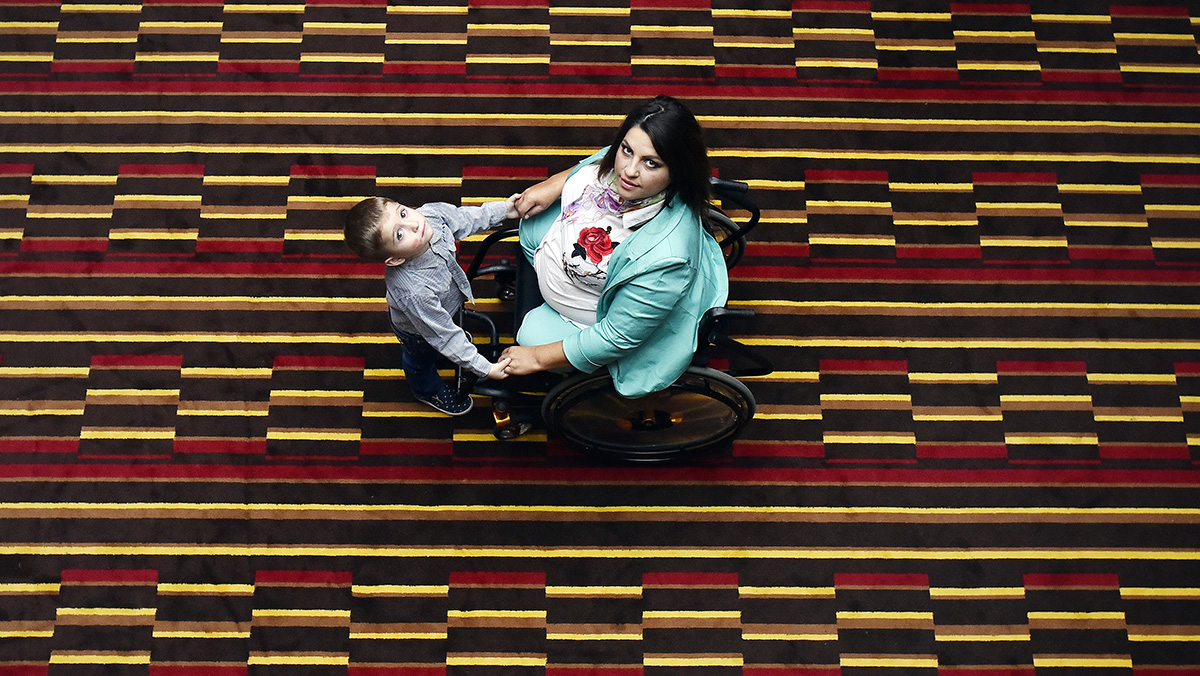
While the pandemic affected all people globally, women have been disproportionately affected due to pre-existing inequalities and prevailing social norms and gender stereotypes.
To mitigate this disproportionate impact, UN Women jointly with UNECE launched an initiative aiming at building a care sensitive and gender transformative sustainable recovery from the COVID-19 pandemic in ECE member states, contributing to the progress in achieving the SDG targets 5.4., 5.540. In the framework of the United Nations Development Account tranche 13 project “Strengthening social protection for pandemic response”, UNECE and UN Women released the report Childcare, women’s employment, and the impact of COVID-19 in Moldova. According to the study, persistent patriarchal attitudes and the insufficient development of care services limit women’s employment options, a fact confirmed by the employment rate. Similar findings are highlighted in a recently completed comprehensive gender assessment undertaken by the United Nations country team in Moldova.
40 SDG target 5.4 - Recognize and value unpaid care and domestic work through the provision of public services, infrastructure and social protection policies and the promotion of shared responsibility within the household and the family as nationally appropriate; SDG 5.5. - Recognize and value unpaid care and domestic work through the provision of public services, infrastructure and social protection policies and the promotion of shared responsibility within the household and the family as nationally appropriate.
In 2019 the employment rate of women aged between 25-49 years old, with children aged between 0-6 years, was 39 per cent, compared to 60 per cent for men with children in the same age group. In contrast, the employment rate of women without children (25-49 years) was 63 per cent, which is higher than the employment rate of men without children by 6 percentage points.41 According to the National Bureau of Statistics,42 in 2018 out of total of 807,000 women who are inactive in the labour market, 183,000 (23%) invoke the family responsibilities as the reason for it, whereas only 6,200 (1.2%) men out of total 514,500 define their responsibilities in the family as the cause of their inactivity.
41
Statistical databank of the National Bureau of Statistics of the Republic of Moldova
42 National Bureau of Statistics of the Republic of Moldova (2019). Labour force in the Republic of Moldova: employment and unemployment, p.178
Family responsibilities regarded as the cause of inactivity in labour market, 2018
Household responsibilities account fort he largest share of the day of a woman: 4.6 hours among the total population and 3.8 hours among employed women. Men generally use the largest share of their time for work: 3.9 hours on average among the total population. At the same time, the duration of the day used for main activities is about 2 hours longer for women compared to men.
Average number of hours per day used by women and men for main activities
The government’s efforts to reduce the impact of the COVID-19 pandemic did not address the specific problems that women and other vulnerable groups face.43 Childcare services designed for children of up to two years are underdeveloped. The insufficiency of childcare solutions in Moldova is among the most important issues that hinder women advancement at work and reduce the rate of employment of women with small children. The pandemic emphasized the need to resolve this issue as urgently as possible. Thus, new approaches are required and should involve the development of alternative childcare solutions to facilitate and encourage the employment of parents with children under 2 years old, without having a negative impact on childcare process.
43 UNECE and UN Women (2021). Childcare, women’s employment and the impact of Covid-19: the case of Moldova.
In this context, UN Women made efforts to identify the most efficient approach and prepare legal amendments to support the development and implementation of alternative childcare solutions. Consistent advocacy was undertaken for collective engagement of employers, state institutions, and the donor community. Stakeholders’ capacities (policymakers, private sector, civil society organizations) were consolidated, through a series of workshops, for a care sensitive and gender transformative sustainable recovery from the Covid-19 pandemic in UNECE countries.
The above-mentioned actions will contribute to improve women’s participation in the labour market, reduce the selection of working mothers into lower-paid jobs, support business community and reboot the Moldovan economy.
Covid-19 has highlighted the links between care, economic policies, and gender equality. Existing challenges are a window for opportunities to develop a gender-transformative and care-responsive policies. To strengthen the cooperation and dialog between all relevant stakeholders, to develop evidence-based policies, to explore the experiences of other states are among the main aspects to be taken into consideration to reach this objective.